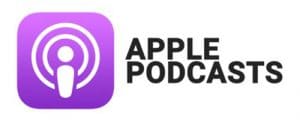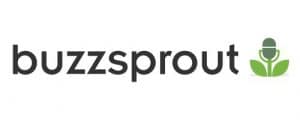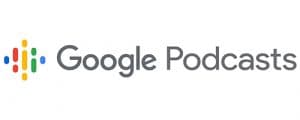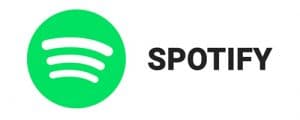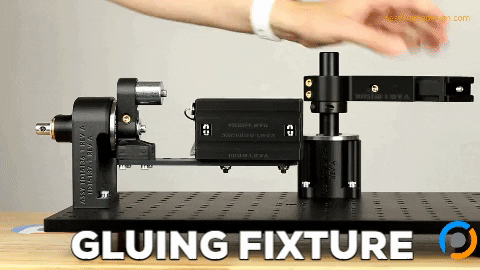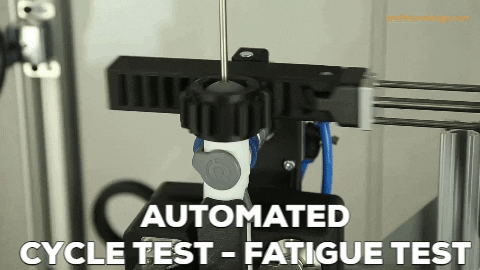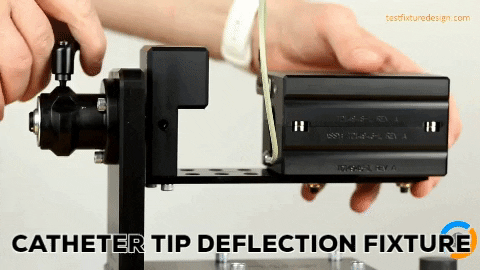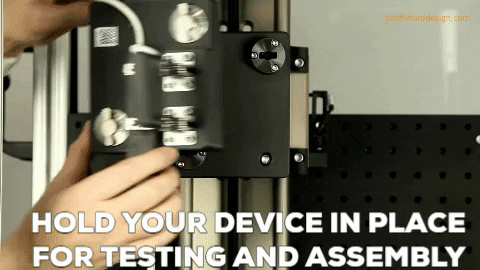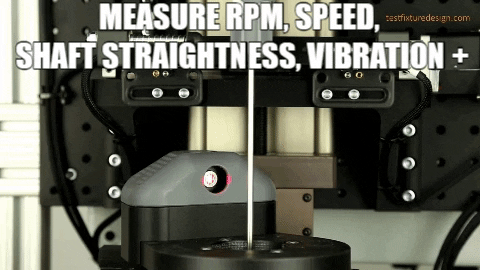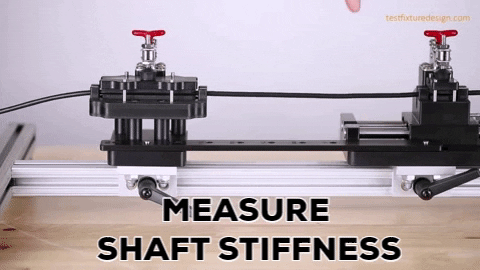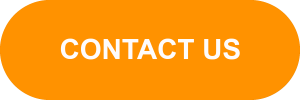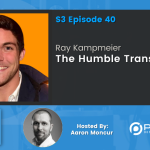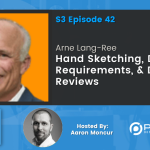Danny Smith | Interviewing Engineers, Managing Engineering Budgets, & Technical Writing
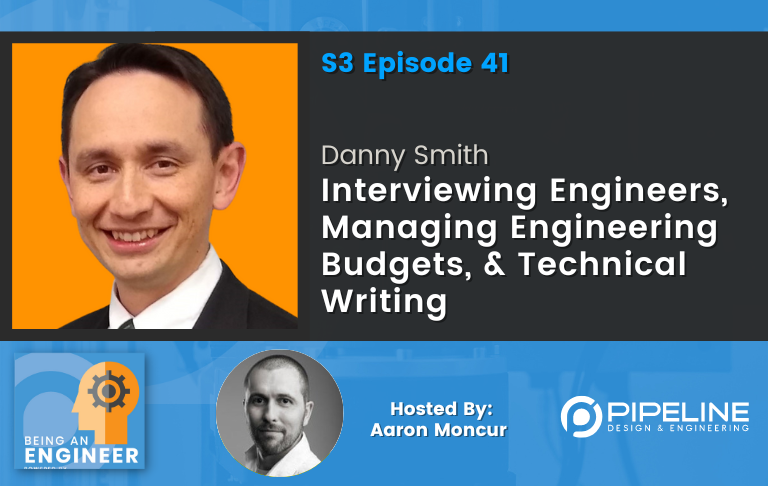
Who is Danny Smith?
Danny Smith is an R&D Manager and Mechanical Engineer with 20 years of experience specializing in medical device product development, personnel supervision, as well as project management. Danny leads cross-functional project teams from initial concept to product launch. He has extensive experience designing and launching medical.
Danny holds both a bachelor’s and a master’s of science in mechanical engineering from Brigham Young University. At this time, he is serving as the Vice President of Research and Development at Fluidx Medical Technology.
EXPAND TO VIEW EPISODE TRANSCRIPTION
SUMMARY KEYWORDS
engineers, medical device, engineering, checklists, product, fluidics, company, writing, people, design, project, inputs, career, work, learn, question, r&d, point, startup, tools
SPEAKERS
Danny Smith, Presenter, Aaron Moncur
Presenter 00:00
Hi everyone, we’ve set up this being an engineer podcast as an industry knowledge repository, if you will, we hope it’ll be a tool where engineers can learn about and connect with other companies, technologies, people, resources and opportunities. So make some connections and enjoy the show.
Danny Smith 00:18
If I were talking to a student who is one in engineering student who wanted to be a med device, I’d probably say, brace yourself for about a third of your life in your career to be writing. Because it is.
Aaron Moncur 00:43
Hello, and welcome to the being an engineer podcast. We’re speaking today with Danny Smith, who is an r&d manager and engineer with over 20 years of experience specializing in medical device product development, personnel supervision and project management. Danny leads cross functional project teams from initial concept through product launch and has deep skills in designing and launching medical devices via design control, establishing quality management system processes, managing engineering staff and generating intellectual property. Danny, thank you so much for being with us today.
Danny Smith 01:19
My pleasure. Thank you for the invite. It’s great to be here.
Aaron Moncur 01:22
Awesome. Okay, well, what made you decide to be an engineer?
Danny Smith 01:27
Oh, from a young age, I always wanted to know how things work. I think I probably asked the words or, you know, asked the question, why so much my parents that they were exasperated, when I was about nine or 10. I remember vividly taking apart three Walkmans. And I think it came to me the engineering might be what I want to do, when I was able to put one back together again, and it worked. That’s where, because you can always I can always take things apart. But I always they broke a lot. When I was exploring what was what made them. When I put one back together, and it worked, I thought I this is it. I’m hooked. I want to be an engineer, I want to be able to do stuff like this. That’s a really, oh, it was a special moment.
Aaron Moncur 02:14
I’m impressed that you even knew what engineering was when you were nine or 10. I probably thought it was a train conductor. You know, how did you even know what engineering was? Had your parents talk to you about it? Or where did you learn about that?
Danny Smith 02:26
That’s sactually when asking why and taking things apart. And I think they shifted their their exasperation over into let’s push them into something that might be useful, and say, Hey, you should be an engineer. And I heard my parents told me that when I was young, and I was, I didn’t actually know what that was about. I did know that there were certain kinds of engineers and they built stuff. It wasn’t until I was in junior high that I had the opportunity to talk to my uncle who’s a mechanical engineer as well. I interviewed him for an assignment for one of my classes. And when he is a mechanical and, and that’s what I am. And when he explained what what he did, and how he carried things out. I was just like that just solidified it. I’m like, Okay, that’s it. You are doing exactly what I want to do. I want to design stuff, I want to make stuff, I want to figure out how to make a do B and B to C and that that’s where it came from.
Aaron Moncur 03:20
That’s phenomenal. That’s the That’s a great story. Big, great background to where you are now, what you mentioned different kinds of engineers, you’re specifically Well, you’re a mechanical engineer, but in the medical device field, how did you get into medical device engineering specifically?
Danny Smith 03:36
That’s a great question I had, I had, I had kind of a crisis of faith. In my engineering degree. I like I said, I wanted to be one since I was 10. I’m getting close to graduation. And I’m like, I have no idea what I want to do with this degree. I don’t know if I want to do auto automotive. I don’t know if I want to do. I don’t know if I want to do aerospace. I was I was looking at myself going. Planes, trains, automobiles, HVAC, I’m not sure what I want to do. And luckily, I got my senior project in college was a catheter redesign sponsor, it was a company, you know, a sponsored project from a company in California. And they had a catheter and, and it just opened my eyes to this whole fantastic world of medical device engineering. I. I mean, it was it was it was just eye opening. And it it pushed me in the right direction. It was like that’s what I wanted to do. And I know this sounds a little cliche, but a lot of a lot of there’s, there’s great, there’s greatness in all engineering. I firmly believe that I wanted mine to mean something to and I think that medical devices has the opportunity to help people. And you know, it was years later before I realized that one of my friends that I grew up with, we were we were actually a freshman orientation for our kids who are now going to call it And we sat next together next to each other as we were going through talking about our kids and can’t believe that oh my gosh, how much time has passed, and we have kids now that are going to college, because we met when we were in college, and and he’s like, oh, yeah, my son’s here and so forth and so on. He talked about, he had a, he had a cancer diagnosis. And he’s in remission now. And we’re very happy about it. And I was talking to him about his treatment and, and he said that he, he got a certain amount of treatment, and like, I did medical devices in that particular in that particular field. And I asked him, if he would send me a picture of the next time that his son had treatment. And sure enough, it was mine. And I’m just like, when you know, I want to make a difference. As an engineer, you want to make it better. And you know, cars and roads do that. They do a great job. You know, all the things that we interact with daily are fantastic. And I was very grateful that day where I like I it wasn’t this broad general, I helped someone I helped my friend Andy’s son. And that made things all real. It took it took a couple of decades to get to that point from that senior project in college. But it is a little cliche, but I felt that medical devices, that’s where I want to be. Well, that’s
Aaron Moncur 06:12
a incredible plug right there. And what an amazing story. You know, like you said, roads and infrastructure, those things certainly help people but to be able to help someone so directly, I think there’s that’s why medical devices is I think, kind of a special area.
Danny Smith 06:30
I have enjoyed it since i i have not tired of it. Let’s put it that way. No, I have not had the some people jump around in careers. And I’m like, I really like what I’m doing. I really do.
Aaron Moncur 06:42
For sure. That’s awesome. Well, at your first job, specialized health products International. It looks like you work quite a few different hats there, you know, including lead designer and manager and manufacturing and regulatory support. And I think there was some sales and marketing is in there as well. What were the the pros and cons of supporting some of the different groups within the company? And do you recommend a roll like that for new engineers?
Danny Smith 07:10
Yeah. It was a startup company. So there were many of us were the same hats across different projects, because we had a couple of project teams, and it was fabulous to be able to do all of that together. Yes, I would recommend it to any engineer and I’ll say why don’t we go through the pros and cons that you asked to write? Yeah, the the tons of experience, you get the chance to learn the different facets of project development and how a company overall works to be successful. You don’t necessarily get that when you’re doing just in just the small sliver of r&d engineering, the ability to work with and sometimes doing the tasks of a cross functional team, and learn what’s required from each group and then assist with those activities. Oh, it’s fantastic, and helps you to develop the skills and the confidence, I think that you have that ability to go in and say, Okay, I don’t know, everything that you know, but I have helped with something along these lines. And so I’m not totally unfamiliar with this. Let’s roll up our sleeves and get to work on this. That’s huge. And so I would you know, cons? Well, the cons are, you’re a jack of all trades, master of none in some way, because you do a lot, but you’re not really good at all of them. And you might take a little more time because if you don’t know the activity, you don’t know the you don’t know the proper course of action for a certain task. Yeah, you, we have to press up the project and kind of learn how to do it and then pick it up again. So there might be a little more time and cost. But other than that, I think the pros far outweigh the cons. And so yes, absolutely, I would I would recommend a role for new engineers to start this there will be a time when you need to specialize in your career, in my opinion, and what I’ve seen in my experience, but at first, I think it’s great to have that multidisciplinary experience, as well as that over overall confidence and and the opportunities that you get from wearing that those different hats.
Aaron Moncur 09:18
Was it difficult having to wear all these different hats at once? Or was it just kind of thrilling and exciting?
Danny Smith 09:25
I will claim naivety I was very that was my first job. So I didn’t know. But actually it turns out it has been really, really fun. I have in my career I have leaned toward startup enterprises, because of that first experience, and that has startup enterprises when you have few people, you usually you work with consultants, but a lot of the day to day tasks in all of those disciplines that you outlined. It’s up to us to do them. And so I really enjoyed it. Yes, it was difficult, but I I think it has been overall fun rather than, rather than that if the fun outweighs the difficulty, I guess I would say, Yeah, I’d
Aaron Moncur 10:09
have to agree with you there. I started pipeline about 13 years ago. And in the beginning, it was literally just me. And so I did, you know, everything, all of the different things from concept sketches up to managing vendors and manufacturing and trying to figure out sales and marketing all at the same time. And it was, it was funny, because the place I worked before, it was a great engineering company, I learned I learned a lot there. But I was pretty specifically focused and just doing the engineering. And the reason that I was no longer employed at that company was I got laid off. And the reason for that was I was kind of disengaged, I just, I kind of got bored, I think. And I didn’t want to put more than 40 hours, and I was looking at the clock and ready to be done. As soon as my 40 hours were up. But once I started my own company, ironically, I was working probably 60 to 70 hour weeks in the beginning, and I loved it, it was great. It’s fun. It is, you know, getting to learn all those different things. And I guess the the added pressure of, you know, having to pay my mortgage by learning those things was was probably helped a little bit as well. But it was a blast. I just I loved that that environment, getting to do all those things. Now, that being said, I am very grateful that I have other people now to help with with those. Of course, it can get old, you know, after after too long, but
Danny Smith 11:37
Oh, but that, that there’s a rush there of being able to look at the list the to do list and you’re like all these things. It’s like, I get to learn about regulatory today I get to learn about sales and marketing today. I have to figure out your finances today. How do I do that? Yeah, it’s fun. I mean, yeah, I, I feel for that comment you made about the mortgage we had. I’ve been in a couple of startups where they’re like, Well, we have money through April, which is like two to three months away. And I’m like, debating with myself, do I tell my family this? Or do I not tell my family this? I might? Of course, I’ll tell them. But But yes. And so that but but it was fun. And it was enjoyable. And I worked. You know, you work hard in those situations to hopefully Yeah. Yeah. See that See that come to pass. It’s great.
Aaron Moncur 12:23
I think it brings out the best and engineers agreed! Well, let’s see, you’re working at a company called fluidics. Now, and this is if I did my math, right, the fifth company that you’ve worked at since you began your career, especially for younger engineers, who might be listening to this, what have you found? There are common reasons for leaving one company so you can transition to another? Or? Or have they all been for very different reasons.
Danny Smith 12:54
Mine has been for a variety of different reasons. But there are times within Okay, so I can speak specifically to the medical device community. And I don’t know much about outside of that, since my career has been within that. I can speak to what I’ve done, and also what I’ve seen some of my colleagues like, I’ve had five jobs, one of my, one of my really good friends in the industry. He’s been we work together at our my first job and specialized health products International. And he joined the company that barred access systems, acquired that company. And that was how I ended up working with Bard. And he’s still there. And he’s been there since and so from his first job out of college until where he is now he’s still been there for he’s been there about 20 years as well. And he loves it. So everyone gets the opportunity to do what they want. For me, I left my I really, I left my first job because it was acquired, was acquired by the bigger company and I loved working for BART access. It’s now Becton Dickinson. It was a fantastic opportunity to network and meet people, you know, 200 people on in the in the building every day, you get the chance to work and but it’s similar to what you were mentioning about sometimes it was just a little more really focused in and I didn’t get the chance at that point to really reach out and do any of the other cross functional skills that I tried to develop in my startup couldn’t do that. And that’s okay, because I was able to specialize. And after working there for for a few years, I looked and I’ve been out for 10 years, right since college I’m not okay. So at 10 years, I’ve started to reflect. I’ve been doing vascular access and safety devices for 10 years now. And at that point, I was I was I said to myself, I can stay within the company and maybe move to another group and learn something about like catheters or poured at ports and other things but former former colleague of mine reached out and said they were trying a molecular diagnostic company and I decided This that change I left barred. And that change was because I really wanted to have that experience to do something new. And molecular diagnostics with a full on equipment like I was brushing off some of that mechanical engineering that I hadn’t done, I’ve done plenty of plastic injection molding, but I hadn’t SPECT a heater in forever, for example, or I hadn’t worked with someone who worked with a electrical engineer on printed circuit boards, and they’re saying, Hey, I have to I have to drive this solenoid to do this. I’m like, Okay, I got a spec you one of the size that I ended that since college. And so this was a chance to actually branch out and do something new. So that’s why I left it wasn’t necessarily because I actually really enjoyed where I was, I was looking for a different experience a set of experience that I just didn’t have yet. And so that was fantastic. There were, I was there for six years, I loved it. The people there were fantastic. There were some financial stuff that went down and many of us were were let go. And that’s how actually I left that one. So that is, unfortunately, a play. One of the reasons why others leave their jobs and, and I had to leave that one for that for that reason. But it was still a good product people thanks to COVID. I think we’re very familiar with PCR now and testing. And it was a great experience to learn about how to do that and work with the scientists and the DNA and that sort of thing. So but my next, my next opportunity had, it arose to be a part of an orthopedic soft tissue repair, oh, just great innovation. They just got clearance from FDA to do their to do their finger finger repair were to repair tendons in the fingers after severe laceration. They’re fabulous. And I love that there. And I was very happy there, the group there was fantastic. But I was approached with the opportunity to have a role outside of the engineer to be a little more of the management side. And so twice, I left a really good spot that I was very happy to be with just a girl and an experience that I think that I thought at that point was where I was in my career. So having been a fluidics for the last three years. I don’t regret it, I missed the people connections as well. And they’re doing great. I’m excited for all they’re doing and but I left for a variety of reasons, as you can see. But overall, I think I would I move when I feel like I need my career, to have that different opportunity point where I just need that experience of something else. And not necessarily like the company culture, which was enjoyable or the people or, but me personally needing to grow. So I jumped to it’s a small fluidics is a smaller startup. There are seven of us currently in the company. So you know, it’s not gigantic, but it gives me the opportunity to go back to my very first experience and wear all those hats. So yeah, for sure.
Aaron Moncur 17:50
Well, that’s an exciting journey for you. That’s great. Well, speaking of Bard, you you mentioned one of the responsibilities you have there was financial planning and managing budgets. Maybe not the sexiest role in the world. But this is something that I actually think about quite a bit. And I’m betting that there are a lot of other engineers out there listening to this, who also think about this quite a bit. What have you found to be maybe one or two of the most helpful tools in managing engineering budgets?
Danny Smith 18:24
Great. Okay, so setting aside, okay, so company has burned rate, etc, etc. In an r&d group, that burn rate I’ve because my experience, the burn rate, usually constantly in r&d group, you know, they’re paying for our salaries, they’re paying for us to do what we need to. So it’s all about the design activities. So when you’re looking at an instrument budget, for me, just some standard stuff, I hope all engineers are doing, but accurate multiple vendor, quotations and planning, if you can, for unforeseen expenses, that’s very difficult to do. But it’s usually based on experience. So an example that I have is I’ve a lot of my early career, I did many plastic injection molded parts, medical devices that I did early in my career, were single sterile, right, we had one device, and they had a lot of little plastic parts in it. Many of those were custom parts that we had to design. So we designed them and then we have the molds built for them, etcetera, etcetera, after you have built a few molds, or whatever it is that you have your experience and you’ll know what the quote is versus and the timing and that sort of thing. But it’s it’s the experience of looking for those unforeseen expenses where we’ve planned for this mold to do this. And the part that comes out of it will do do A, B or C. What happens when it doesn’t? How much do you need to set aside for a fix? Yeah, some of that experience occurred to me when I was early in my career, and I made a $10,000 mistake that I had to go to my boss and say, I have to redo all these molds. And I got the quote, and it’s it was actually about 11. I guess it’s $10,800. And he was like, how did this happen? And so we went through we went through how it happened, but it was it was, it was an impact his budget that I learned later to say, you don’t necessarily you don’t pad numbers, but you do use experience to go, what are those unforeseen expenses? Okay, so that’s one of them. And I know this isn’t like a good This isn’t like a spreadsheet tool or anything. But what design activities can you do? When I was at a larger company with bigger resources? It was very, it was very interesting. Because I contrasted my experience with a startup where we literally had nothing, it was like, What can I do with this pencil? And this? And this PC? Yeah, exactly. Duct tape, and this dowel rod, what can I do? Versus downstairs, there’s a machine shop with, you know, five lays and, and, and six mills. And we can do whatever we want. Just have to charge it to your to your budget. It’s all about the design activities. What can you do? smartly? Not really word, but how can you be smart about what you do with your design activities to help with your budget? And so challenging the team to do that? And then managing the budgets with those quotes? are the tools that I would recommend everything else? I think is is? I don’t know, I would probably defer to to financial gurus at that point. But those are the tools that I have used to help with r&d budgets in an r&d setting.
Aaron Moncur 21:36
Excellent. Thank you for sharing that. Along this this engineering management path. Another question I wanted to hear your feedback on was was you’ve been involved with some hiring or at least providing recommendations for hiring. What are some questions that you like asking engineers during an interview?
Danny Smith 22:00
I like I like asking a couple, the one of them that I really like is how would you have changed your work situation in your last places of employment? How would you have changed it? Why aren’t you satisfied? Or why did you have to leave? Why did you choose to leave? I think you’re all are all kind of contained in that in that one question. Because that if the answer starts coming out about people, then maybe it’s personnel issues, if the if it comes out with with the team structure and how they were really how they were compensated that that’s another that sheds light on where they are. And so that question also kind of has opened up at times where I’ve noticed the the engineer who’s interviewing with me to where I can see whether or not they are they? Were they the issue? Yeah. Why did they leave? Because what situation was it that they would have changed? And that can open up some things. Another one? That I like asking, because engineers, I don’t know if you’ve heard the saying to kill the engineer after a certain point. You just kind of we keep engineering, we keep designing, we keep we keep going. Oh, yeah, sure. Yeah. So engineers like to hit perfection. And so I asked a question about that. I said, Give me a situation where you had to weigh perfection, versus the other factors that would limit that and actually be
Aaron Moncur 23:28
successful. That’s a good one. Because it’s
Danny Smith 23:30
a challenge. All of us want the perfect product? I mean, I know I do. I know I always have, I still have things in the back of my head and products that are launched and have lost years and years ago, I’m like, Ah, could have done that a little better. And it’s like, but it’s a good product. Well, when good gets in the way, you know, when perfection gets in the way of great or good. I asked them so you know, what, where did you land? You know, what, what, what? What trade offs did you make? And, you know, because that that opens my eyes? I like that question because it opens my eyes to what their thought process is and how willing they are to trade off that obvious goal of perfection for something that is still a good product.
Aaron Moncur 24:12
Right? Yeah. Done is better than perfect. I’ve heard people say
Danny Smith 24:16
I like that one. I’ll start using that.
Aaron Moncur 24:21
Alright, well, you’ve been both a project engineer as well, as an engineering manager. Do you think that being a good engineer necessarily makes one a good engineering manager?
Danny Smith 24:32
No, absolutely not. But I will say that the the organizational thought patterns of engineering that you’re trained and some, you know, inherently carry, that, that method. The method of thinking, does lend yourself to being a good project manager. So in the medical device field, when you’re there are multiple engineers in different groups. There’s quality engineers and packaging engineers and all sorts of engineers. Um, the r&d engineer in medical device is oftentimes in many companies tapped to be the project manager, because of those organizational skills, skills and the methodology that they learn. It does take training to do it right. And so I don’t think it’s inherent. I also add that while I don’t think it is, it while, you don’t always become a good project manager by being a good engineer, it’s not that far of a leap to get there.
Aaron Moncur 25:30
Okay, that makes sense. Any tools or training that you’ve seen as being very effective for engineers to transition into that managerial role?
Danny Smith 25:41
I think that there’s a lot to be said about looking at the in medical device, there are cross functional groups. And you’ve got to look at it from every one of those points of view and say, what does the regulatory group need to talk to FDA about? So how do I get that into my into my project schedule? And how do I make sure that that timing is right? What is the quality engineer see about when they’d have to develop my risk assessment for this product? marketing needs to get those design inputs? How much time are they going to need to do that. So looking at, from their points of view, instead of just looking at, I’ve got my Gantt chart, and I’ve got it starts on this day, and it ends on this day, and we’ve got to fit everything in there. It’s more about working with those people. The other tools are out there, there’s a there are a lot of better than me, a lot of people who can, who can teach how to do project management. But what I’ve noticed about being a good project manager is, you’ve got to know how to help your cross functional teammates, be successful. And if you do that, the schedule usually takes care of itself, because then they’re usually on your side to get things done in the time that’s required, per what management probably would like you to get it done. That’s the number one.
Aaron Moncur 26:57
I love that advice. You know, at the end of the day, business, as in life is all about people. And the more you can work well with people, the better you’re going to do, regardless of you know, engineering or whatever, finance, marketing, sales doesn’t even matter. Really. I’m listening to a an audio book right now, this is a pretty popular book. It’s been around for a while Extreme Ownership by jakka. Willing, and got to that one. Yeah. See, that was me. I’ve heard of it, you know, for like, a decade or something. And I kept thinking to myself, I understand, you know, Extreme Ownership, I get it, I get it, I don’t need to read it. So I agree with it. I already understand. So what you know, I don’t need to read it. Anyway, I’ve been listening to it. And it’s phenomenal. And it’s it’s it’s a lot more than just Extreme Ownership. It’s about really, it’s about managing teams. And so it’s it goes far beyond just this concept or principle of Extreme Ownership, it gets into some pretty specific principles for managing teams. And it’s surprisingly, they make these analogies between leadership principles on the battlefield and leadership principles in business. And there are surprisingly, I’m almost shockingly applicable, you know, just how cleanly they apply from the battlefield to to business anyway, it’s, I think it’s a wonderful book. And for anyone out there who’s leading teams, I recommend picking that up Extreme Ownership, it’s about more than just taking responsibility. There’s a lot more to it.
28:38
So I’m putting that way back on the top of my list and Okay, there you go.
Aaron Moncur 28:41
Yeah. All right. Mission accomplished. Back on without All right, well, I’m gonna take just a very short break here and share with the listeners that Team pipeline.us is where you can learn more about we how we help medical device and other product engineering or manufacturing teams, develop turnkey equipment, custom fixtures and automated machines to characterize, inspect, assemble, manufacture and perform verification testing on your devices. And we’re speaking with Danny Smith today. So Danny, you’ve worked with, or you’ve worked on a variety of different medical devices, has there been one in particular that was really interesting for you? Or are they all you know, more or less have the same appeal?
Danny Smith 29:25
I have loved all the things that I’ve worked on. That being said, there are some that are near and dear to my heart. And I I can’t see you know, you’re just the first one is always there’s some special about the first one. My My favorite is probably the mini lock, safety infusion set. That was my first product that I was given to be the lead designer on as well as to manage it from start to finish, meaning concept to launch was launched in 2005. And it’s still going and so Wow. Oh, yeah, so that’s one of those things where I mean, it’s it’s support access for oncology to help those fighting cancer. And
Aaron Moncur 30:08
if this is the one that helped your friend Andy’s son,
Danny Smith 30:11
a parallel is a sister product was one that helped my son, but it was this is one that actually my aunt who went through chemotherapy actually did use this one. So it touches. But that one was really enjoyable from start to finish to be able to be given the design inputs and say, You need to have something that fits this envelope, and we need to have it safety device be this good. And we need to have this flow rate, and we need to have this needle orientation and that sort of thing. And so it was, I don’t know, sometimes the first one just kind of has a special place. And so that was where I want to have to say is, is has been particularly memorable for me.
Aaron Moncur 30:55
Excellent, excellent. Okay. As you’ve seen more and more in your career and work with more and more engineers, especially in leadership roles, and as a manager, what skills do you commonly see in your most talented and most productive engineers?
Danny Smith 31:13
The skills that I see are those that are willing, okay, first of all, because I’ve been in the startup environment, first of all, they’ve got to be able to work unsupervised, like actually, like, get things done. They’ve got to be able to think critically, I mean, start to finish. And also all the aspects of what that means. If you’re writing a report, for example, you think yourself, who’s the audience for this? across the entirety, it’s not just the team that I’m running this for? I’m writing this for FDA who might audit this, I’m writing this for the next project team that looks at this and says, that’s a good template for writing this next one. That broad point of view, is really important. The ability to communicate is absolutely huge. I mean, it’s just so important ideas, but not just like the test, the testing and the results and the conclusions you make, that’s really important. But what do you see? How do you see this project going? What direction does it need to go? Not just the product of the project? And then I think the strong a strong middle, a strong bit of OCD kind of some of us seem to have in, in engineering, I think that does, that does have a good point, to help. And the last thing I’d say is, I like people who think different than I do, if they think differently than I do. And that usually means that we’re going to come up with something really good. Because if we all think about solving the problem, from the same point of view, we’re always going to get the same product, all the all the ideas are going to line up to be the same thing. But when we have someone who thinks opposite of what I do, we can come to a different product, it’s probably going to be a lot better than if my view was the only one looking at it. So those are some of the things that I would say,
Aaron Moncur 33:10
I liked that. You mentioned a little bit of OCD. Yeah. I, I have I had an old boss who would say that to do this job. Well, you have to be a little paranoid. And Jim Collins, the business author writes about, you know, some some traits that successful companies have and one of them he lists is is productive paranoia, he called it and I thought that went along pretty well. Yeah. Paranoia.
Danny Smith 33:40
I liked that.
Aaron Moncur 33:42
I did too. Well, you also mentioned communication, which, you know, honestly, I asked this question to a lot of people on the show and I get that answer probably more common, most often than any other answer, good communication skills. Are there any any tools or specific methods that you’ve used to mentor engineers in improving their communication skills?
Danny Smith 34:05
I’ll start with, I’ll start with the writing side. Medical devices, unbeknownst to me, are just huge and technical writing you have a lot of technical writing to do. If I were talking to a student who is one in engineering student who wanted to be a med device, I’d probably say, brace yourself for about a third of your life in your career to be writing. Because it is and it might be more than that, depending on if they go into pharma or if they do like what we’re doing now. We’re gonna we’re doing fluidics is doing a more complicated medical device than I had done in my previous career. So we’re doing a lot more writing than my my previous jobs. And so you’ve got to work on technical writing. You’ve got to appreciate your audience. You’ve got to be clear concise about how you present the data. or the conclusions that you make. And again, I think I mentioned it earlier, what audiences is for it’s for everyone is for the project team is for your own management is for FDA who will audit that product, after it’s launched, to make sure it’s safe and effective that you’ve done it properly. All of that, so the writing is huge. So I’ve got to push on communication is going to be a lot of it is going to be in writing. I think I’m going to go back to interpersonal skills. As far as communication, you’ve got to learn to see things from others point of view. And I will add, so I’ll add this point to, for Father’s Day, my daughter, my college aged daughter got me a t shirt that said, I’m an engineer to save time, let’s just assume I’m right. So that’s it, she makes me wear that every once in a while because of that. engineers tend to think that way, or there wouldn’t be a t shirt, I’m just gonna say, Yeah, and if you see things from other people’s point of view, and concede that you’re not always right, those things go a long way to help communication. Because if you open yourself up to being, hey, that person’s point of view might actually be better than mine. That helps with a lot of where that interpersonal communication can be effective, and useful, and stop being combative, and detrimental.
Aaron Moncur 36:25
Yeah, I’ll add a little bit to your technical writing, I’ve done quite a bit of technical writing myself. In fact, I remember a technical writing class I had in college, that I really didn’t know what it was, until I got into the class. And I ended up really enjoying it, it was it was kind of a fun class, one of the exercises they had us do was to, we had to, in writing describe a physical object, in enough detail that someone could draw out that object correctly, you didn’t tell them what the object was, you just said, you know, move up two inches, and then turn to the right at 45 degrees and move, you know, kind of like that, right. So you have to be really, really detailed. And I remember choosing the profile of a toilet plunger and, and handed it off to someone. And sure enough, they were able to draw it out. But it was just a fun class. And I’ve I’ve done a fair amount of technical writing since then, in, in my career, and what I’ve noticed is that, you know, maybe you don’t want to spend a third of your career doing technical writing, but it transfers to other communication skills. And I’ve noticed that as I’ve gotten into leadership, and business development, and sales and things like that those writing skills are hugely important, super powerful to have that skill set, you know, it just helps you become a better communicator. So maybe technical writing, you don’t want to do that forever. But just realize that those skills are more than just an engineering skill. They’re a communication skill that will take you a lot further than you know, just the engineering aspect of it.
Danny Smith 38:03
Absolutely agree. Absolutely. Agree.
Aaron Moncur 38:07
Let’s see, I have found checklists to be a powerful tool in performing engineering work. Do you use checklists? And so if, if so, have there been one or two that you found? You know, kind of generally useful and applicable to engineers involved in new product development?
Danny Smith 38:26
Absolutely, I think they’re fantastic. We get a little bit of a pass in med device because we being regulated, and then also having ISO, like, ISO certification and other things like that, for most companies that I’ve worked for, they’ve been ISO certified. There are standards, ISO standards that we need to follow. And they actually come with checklists, as it were. And so we’re kind of, we’re kind of cheating. And so what I say that, absolutely, I don’t know that I have much better than what I can recommend from like ISO 1340 45, which is the overarching guidance from about medical device design. There’s other FDA guidance as well. But yes, checklists are usually built in and by checklist usually. So I’ll describe just really briefly what they asked us to do in these in the ISO, which I think is a great way of doing it anyway, is to break down the project into into phases, manageable phases. You’ve got an early pre development phase, you’ve got a concept phase, and you’ve got a feasibility phase, then you verify and validate phase, then you launch the product and that phase and then you do a post launch and say how did how is the project going and make sure you close any action items. Within those phases. There are checklists that help you to make sure you’re doing what needs to be done. So when you’re doing a verification test and you have checked you have a list of key deliverables that need to be done. And then activities that are associated with those. And those checklists are huge. and making sure that they’re done properly. And usually they’re done in a certain order, not always, but oftentimes, they’re done in a certain order. And when that needs to happen, those are invaluable. So again, we kind of, we kind of get, we kind of get a pass because we
Aaron Moncur 40:18
are already baked into your process. And as,
Danny Smith 40:21
as for those, you know, for those that are regulated in that way, it may be similar in other in other fields, but in medical device, we, we kind of follow 1345 and, and do our best to adhere to that, because that’s what FDA would like to see.
Aaron Moncur 40:36
Yeah, yeah. Well, checklists are an incredible tool, one that I love, and I use, probably daily. What is one tool that doesn’t exist now that you think would dramatically increase the speed of engineering? If it did exist?
Danny Smith 40:55
Gosh, you know, I don’t know, we better start identifying some inputs and designing it because I actually don’t know what to look for on that one. That is a very good question. And I don’t have an answer for that.
Aaron Moncur 41:06
Someone I asked earlier said teleportation, which I was not expecting, but he was right. I mean, how much time would that save? Right? It would be incredible.
Danny Smith 41:16
Absolutely. We I mean, we were we have a we just wrapped up a feasibility clinical trial in New Zealand, and it sure would have been a lot. Teleportation would have been would have been easier.
Aaron Moncur 41:28
Oh, big time. Yeah. All right. Well, let’s see. Let me let me get just one more question in here. And then we can wrap things up? What is the hardest part of your job?
Danny Smith 41:39
Oh, I never say the hardest part is anticipating the needs needs of patients needs of clinicians and needs of the market, which are often actually competing, right? The patient’s needs are not the same as what the market wants to see, you want to sell a product, that’s not necessarily what that treatment or that procedure is intended to be for the patient, you’re looking at dollar signs versus the patient, and then the clinician, how do they interface with it? How do they use it? How do they work with it? Those are all different questions. I think that’s a huge, huge challenge. So gathering the correct inputs to that, it’s key to any good medical device. So getting those right inputs, helps us to design the right product. So it’s often said, FDA actually comes out with with guidance statements similar to this, but it’s like, you get verification testing on your product, you get it, you test it, you know, you can pull on it, it’s this strong and flow, the flow rates this high, etc, etc. And it’s like verification testing usually just outlines. Did we make the product? Right? You know, did we did we make it? And is it passing all of its specs, but you when you validated in the market back to those needs, the patient’s needs, the clinicians needs, the market needs. The question that that answers is did we did we make the right product? And that’s I think the hardest part in medical device is are we making the right product. And that I think is the hardest part everything else is is while lots of hard work, it’s it’s it’s fun. Once you have the inputs down, you can really put that target in front of you and you aim for it. And then you can go, yeah, and I love I have to put in a plug for all the I’ve had wonderful, those inputs are usually gathered by the marketing groups that I’ve worked with. And they are fabulous without them. Without them this, that would that would be the biggest challenge and it would be almost over, it would be very difficult to overcome.
Aaron Moncur 43:43
It allows us to do what we love, right, like designing and creating things is as long as we have the inputs, we know what the target is, we know where the Bullseye is, and that then we can let our arrows fly. But without that, you know, what, what what are we aiming for? What’s the purpose in the end?
Danny Smith 43:58
Exactly right.
Aaron Moncur 44:01
Well, Danny, this has been a wonderful, wonderful conversation. I appreciate you taking some time out of your busy day to to talk with me and share your insight and wisdom with all of the community here the being an engineer podcast. How can people get a hold of you?
Danny Smith 44:17
Absolutely. So I’m on LinkedIn. There are a few Danny Smith’s on there. So look for the one from Woods cross, Utah. It’s two words Woods cross, Utah. Currently, I’m the vice president of r&d at fluidics medical technology that’ll that’ll be what it says I’m also on Twitter. I don’t tweet a lot, but I’m at DK Smith. threezero.
Aaron Moncur 44:36
Wonderful, wonderful. Well, Danny, is there anything else that we should talk about today that we haven’t hit on yet?
Danny Smith 44:42
I don’t think so. And I really appreciate the time. Thank you for letting me be a part of this.
Aaron Moncur 44:46
Absolutely. You’re very welcome. Thank you. I’m Aaron Moncur, founder of pipeline design and engineering. If you liked what you heard today, please share the episode To learn how your team can leverage our team’s expertise developing turnkey equipment, custom fixtures and automated machines and with product design, visit us at Team pipeline.us. Thanks for listening.
We hope you enjoyed this episode of the Being an Engineer Podcast.
Help us rank as the #1 engineering podcast on Apple and Spotify by leaving a review for us.
You can find us under the category: mechanical engineering podcast on Apple Podcasts.
Being an Engineer podcast is a go-to resource and podcast for engineering students on Spotify, too.
Aaron Moncur and Rafael Testai love hearing from their listeners, so feel free to email us, connect on Facebook, Twitter, Instagram, and subscribe on Apple Podcast and Spotify!
About Being An Engineer
The Being An Engineer podcast is a repository for industry knowledge and a tool through which engineers learn about and connect with relevant companies, technologies, people resources, and opportunities. We feature successful mechanical engineers and interview engineers who are passionate about their work and who made a great impact on the engineering community.
The Being An Engineer podcast is brought to you by Pipeline Design & Engineering. Pipeline partners with medical & other device engineering teams who need turnkey equipment such as cycle test machines, custom test fixtures, automation equipment, assembly jigs, inspection stations and more. You can find us on the web at www.teampipeline.us
You’ve read this far! Therefore, it’s time to turn your headphones up and listen now to this episode to learn all these. Don’t forget to tell your friends who might like this too!

